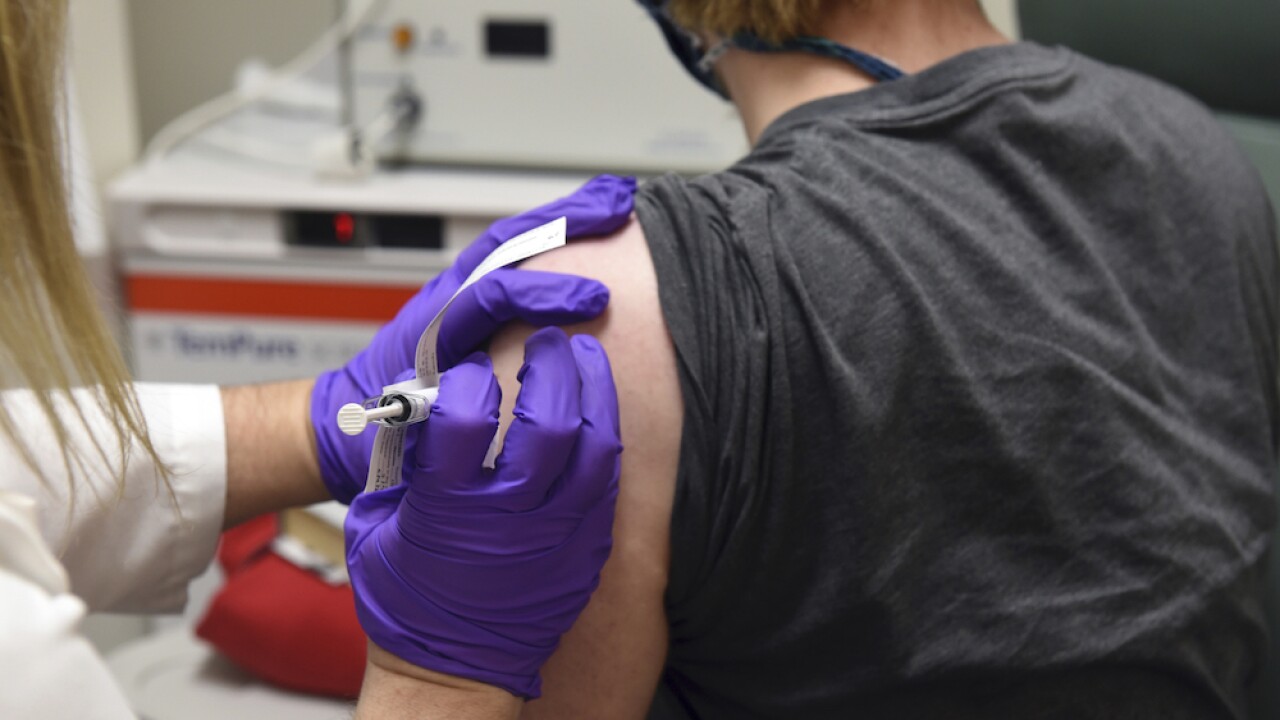SAN DIEGO (KGTV) — Independent reviews by the FDA show the COVID-19 vaccines by Pfizer and Moderna have similar levels of safety and efficacy, although there are early indications of potential differences.
Both vaccines rely on the same basic approach: jumpstarting the immune system with messenger RNA. The FDA confirmed their overall efficacy is essentially identical; 95 percent for Pfizer and 94.1 percent for Moderna.
However, signals in the data suggest Moderna’s vaccine may better protect against severe cases of COVID-19, while Pfizer’s vaccine may work better in adults over 65. But experts warned those differences may just be statistical illusions.
In Moderna’s study of 30,000 volunteers, 30 people got severe cases of COVID-19. All 30 of those cases were in the placebo group, suggesting the vaccine offers powerful protection against the most serious symptoms.
In Pfizer’s trial of 44,000 volunteers, one vaccinated person got a severe case compared to 10 people in the placebo group.
“We still need more data,” said Dr. Abisola Olulade of Sharp Rees-Stealy. “It's not a reason to recommend one versus the other.”
In adults over 65, the efficacy of Moderna’s vaccine dipped slightly to 86.4 percent. Pfizer’s vaccine was 92.9 percent effective in people aged 65 to 74 and 100 percent effective in individuals 75 and up.
“When I think people in the community look at that number, they might say, ‘Oh, that Moderna vaccine probably isn't as good for the older population compared to the Pfizer vaccine.’ But as a clinician looking at numbers, they're both amazing,” said UC San Francisco infectious disease expert Dr. Peter Chin-Hong.
FDA scientists found both vaccines are safe but short-term side effects are common, especially with Moderna’s drug.
Both vaccines are administered in two doses. The table below lists the percentage of vaccinated volunteers who reported a side effect after either dose, although side effects were most common after the second injection.
| Side effect | Moderna | Pfizer |
| Fatigue | 68.5% | 62.9% |
| Headache | 63.0% | 55.1% |
| Muscle pain | 59.6% | 38.3% |
| Joint pain | 44.8% | 23.6% |
| Chills | 43.4% | 31.9% |
| Fever | 14.8% | 14.2% |
Typically the symptoms went away in one day.
“Just because a vaccine has side effects doesn’t mean it’s not safe,” said Dr. Olulade. “We know that side effects happen actually because your immune system is working and waking up. It's actually a positive thing.”
The slight difference in side effects could be because of differences in the way researchers polled volunteers, or it could be something with the architecture of the vaccines, experts said.
The companies use different tiny bubbles of fat to enclose the messenger RNA. Moderna’s bubble is a little stronger and more stable so it doesn’t need to be stored at sub-arctic temperatures.
“It could be that [Moderna’s] elicits a little more inflammation than the other,” Dr. Chin-Hong said.
Having slightly more side effects could be a sign that Moderna’s vaccine prompts a stronger immune response that might lead to longer-lasting immunity, but the durability of either vaccine remains one of the most pressing unanswered questions.
The biggest difference may be where the vaccines are deployed. Since Pfizer's vaccine needs to be stored at such cold temperatures, experts said Moderna's vaccine may be prioritized for rural hospitals and community health centers that lack ultra-cold storage units.




